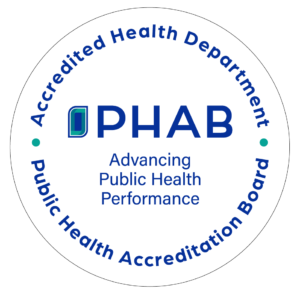Location and Phone
120 S. Hays Street, Suite 200
Bel Air, MD 2101
410-877-2300
News Update: Maryland Department of the Environment Issues New Fish Consumption Advisory and Guidelines. Click here to learn more.
The Harford County Health Department Environmental Health Bureau has begun to monitor for indicator bacteria at county recreational water sites at Kilgore Falls, Wilsons Picnic Area, Hills Grove Picnic Area, Mariner Point Park, Flying Point Park, and Copenhaver Park.
While entering natural waters is not risk-free, monitoring for indicator bacteria provides a way to minimize potential health risks that may be associated with entering the water. Disease-causing microorganisms (or pathogens) occurring naturally or associated with untreated sewage and animal waste can pose a health threat to those entering the water. Because there are so many potential pathogens, “indicator organisms” are used to assess water quality. Indicator organisms, such as Enterococci and E.coli, are two bacteria commonly found in the gut of warm-blooded animals and are used to indicate a recent source of pollution at a beach. The United States Environmental Protection Agency (EPA) has developed water quality criteria based on studies that show an elevated health risk to swimmers when thresholds of indicator bacteria are exceeded.
According to the Maryland Department of the Environment and the Maryland Department of Health: Beaches are places where people engage in activities that could result in the accidental swallowing of water. Maryland defines beaches as, “natural waters, including points of access, used by the public for swimming, surfing, or other similar water contact activities.” In Maryland, the beach season is designated from Memorial Day to Labor Day.
Harford County does not have any official bathing beaches, but will monitor selected recreational water sites every other week. The information presented below is solely to inform the public and not to close the area.
The following table contains the current results for indicator bacteria in selected Harford County areas and the dates the samples were collected as of August 27, 2024. Water sampling runs from May to August. Freshwater (Kilgore Falls, Wilsons Picnic Area, and Hills Grove Picnic Area) is tested for E. coli and Marine Water (Mariner Point Park South, East and West, Copenhaver Park, and Flying Point Park) is tested for enterococci.
 Click on each location # below to see an archive of past results.
Click on each location # below to see an archive of past results.
Harford County Recreational Water Sampling Maps
Although these areas are not beaches, as a reference, the Maryland thresholds for beaches where people are swimming are 104 cfu (colony forming units) of enterococci for marine waters and 235 cfu of E.coli for fresh water.
2024 Recreational Water Sampling Results
|
Sample Locations |
Recent Sample Taken | Geometric Mean (cfu) | Indicator | Threshold Level: | Impact Within 24-48hrs |
Above Threshold Level? |
|
*Kilgore Falls |
8/26/2024 | 199 cfu | E. coli | 235 cfu |
No |
|
|
*Wilsons Picnic Area |
8/26/2024 | 218 cfu | E. coli | 235 cfu |
No |
|
| 8/26/2024 | 256 cfu | E. coli | 235 cfu |
Yes |
||
| 8/27/2024 | 147 cfu | Enterococci | 104 cfu | Low tide |
Yes |
|
| 8/27/2024 | 29 cfu | Enterococci | 104 cfu | Low tide | No | |
| 8/27/2024 | 49 cfu | Enterococci | 104 cfu | Low tide |
No |
|
|
+Copenhaver Park |
8/27/2024 | 43 cfu | Enterococci | 104 cfu | Incoming tide |
No |
| +Flying Point Park | 8/27/2024 | 74 cfu | Enterococci | 104 cfu | Incoming tide |
No |
Archived Recreational Water Sampling Results
Key:
^ Data not available due to laboratory error
* Swim at your own risk according to Department of Natural Resources
+ Swimming or wading in the water is prohibited according to Harford County Government
If the count is above acceptable THRESHOLD Level:
The risk of illness comes from contacting recreational water in several ways. These include ingesting natural water, getting water in the nose, eyes, and ears, or an open wound. If one has an open wound on the lower legs or feet, it could become infected even from wading. It is important to note that sample results reflect the water conditions at a particular time and that surface waters are not bacteria-free; water that is muddy or murky looking such as after a heavy rainfall is more likely to have higher levels of bacteria. Parents of young children should be especially cautious, since the children may be more vulnerable to infections from contaminated water, as well as more likely to swallow water when swimming or playing.
Click here to learn about E. coli and enterococci.
Click here to visit the Gunpowder Riverkeeper’s swim guide.
For information on what you can do to help protect our water, go to www.marylandhealthybeaches.com.


